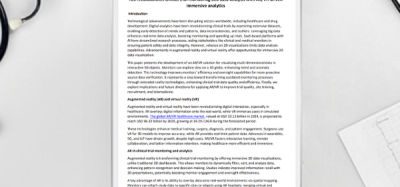Arthritis drugs potentially safe for expectant mothers
Pregnant mothers may use rheumatoid arthritis drugs without increased health risks to unborn baby…
A new study has revealed that pregnant women with rheumatoid arthritis (RA) may be able to use certain RA drugs without possible increased health risks to their unborn babies.
Rheumatoid arthritis is a debilitating disease with physical, emotional, and economic consequences that afflicts about one percent of the world’s adult population. This autoimmune disease, which causes chronic inflammation of the joints and other areas of the body, affects two to three times more women than men and there is no existing cure.
Dr Évelyne Vinet and her team from the Centre for Outcomes of Evaluative Research (CORE) of the RI-MUHC analysed offspring exposed to tumour necrosis factors inhibitors (TNFs) – an immunosuppressant RA drug commonly used to reduce inflammation and relieve pain.
They did not observe any marked excess risk of serious side effects when compared to unexposed children from mothers with RA and children from the general population. Their research showed that although TNFs cross the placenta, the drug may not increase immunosuppression nor compromise the child’s ability to fight infections.
“Knowing there is not necessarily an association between infections and these RA drugs will be very reassuring to expectant mothers,” says first author of the study Dr Vinet, who is a scientist from the Infectious Diseases and Immunity in Global Health Program at the RI-MUHC and an assistant professor in the Department of Medicine and Division of Rheumatology at the Faculty of Medicine of McGill University. “It is important to highlight these findings so would-be mothers understand they can enjoy a normal pregnancy without being burdened by unnecessary stress.”
Dr Vinet’s team studied nearly 3,000 children from mothers with RA (the largest cohort ever assembled) and a randomly selected group of nearly 15,000 children over the course of their first year of life. Within the RA group, 380 children were exposed to TNFs and 3.2 percent presented serious infections. That number is just slightly above those with no TNFs (2 percent) and the control group (1.9 percent).
“However, until further studies are conducted to address this issue,” says Dr Vinet, “it is important to follow current recommendations when treating women with rheumatoid arthritis during pregnancy.”
The research findings are published today in the journal Arthritis & Rheumatology.










